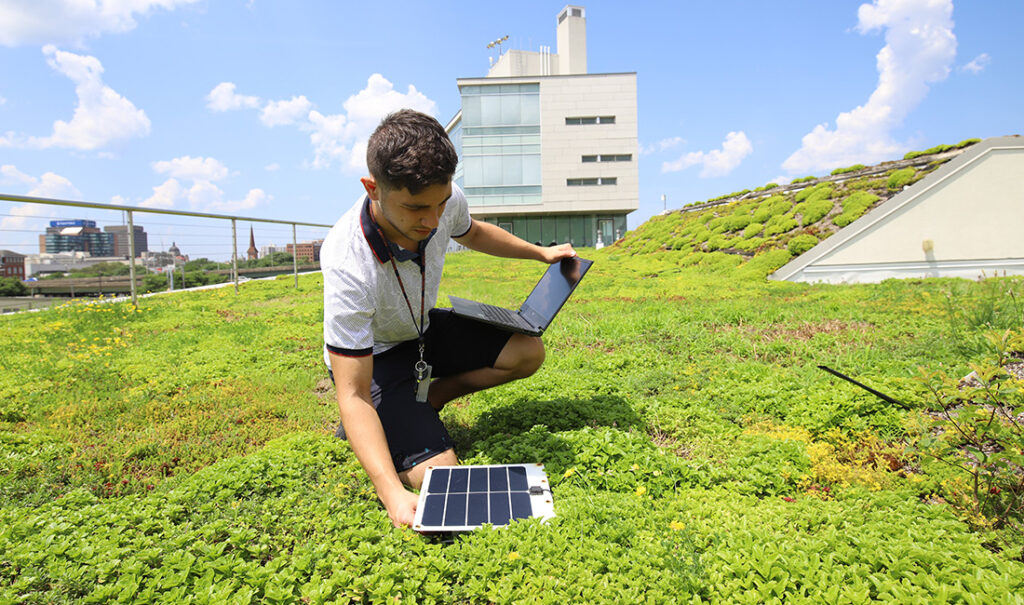Syracuse University’s College of Engineering and Computer Science is excited to announce the opening of the Center for Advanced Semiconductor Manufacturing (CASM).
CASM exists to advance the science, engineering, application, and training of a new generation of innovators working at the convergence of robotics, automation, and semiconductor technologies.
The center is set up with automated robots designed to work together and a state of the art control room that replicates an autonomous-advanced manufacturing floor.
The center is built on three foundational pillars:
- Supporting logistics and operations essential to semiconductor installations and foundries. CASM will strengthen the systems and processes that make large-scale manufacturing efficient and sustainable.
- Harnessing semiconductors to advance Industry 5.0 where human expertise and intelligent automation work together to create industries that are more adaptive, ethical, and resilient.
- Advancing robotics and mechatronics. Syracuse University researchers are developing the intelligent, precision-driven systems that will transform the way we design, build, and maintain advanced manufacturing environments.
CASM is an opportunity for students to gain hands-on experience in a modern manufacturing environment, for faculty to turn research into solutions, and for partners find a collaborative environment to explore new possibilities in advanced manufacturing and the semiconductor ecosystem.
The center opens as Micron Technology continues its $100 billion investment in Central New York, which is expected to create 50,000 new jobs in the region, including 9,000 high-paying jobs directly with Micron. Micron will also invest $500 million in community and workforce development.

